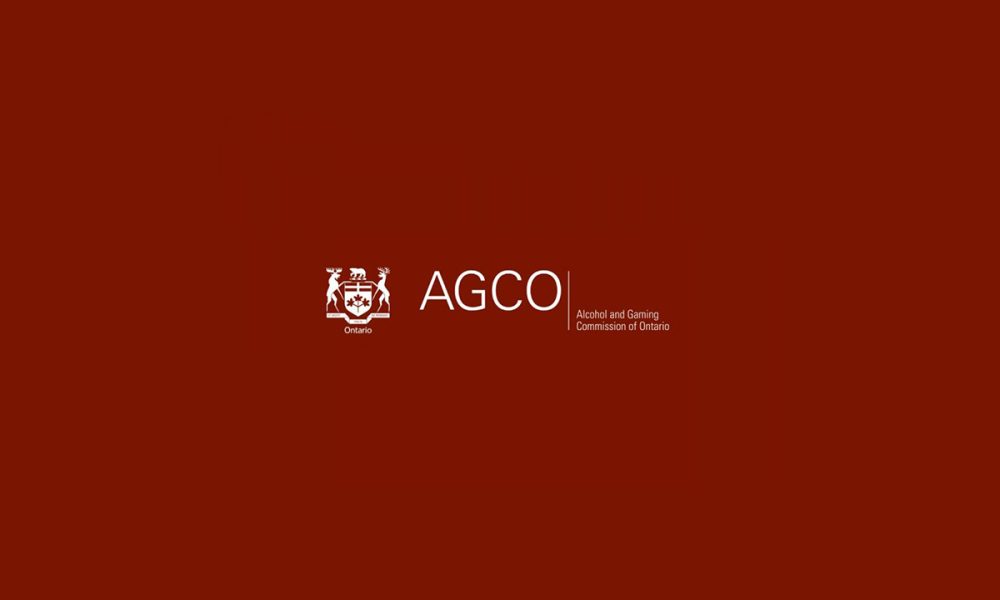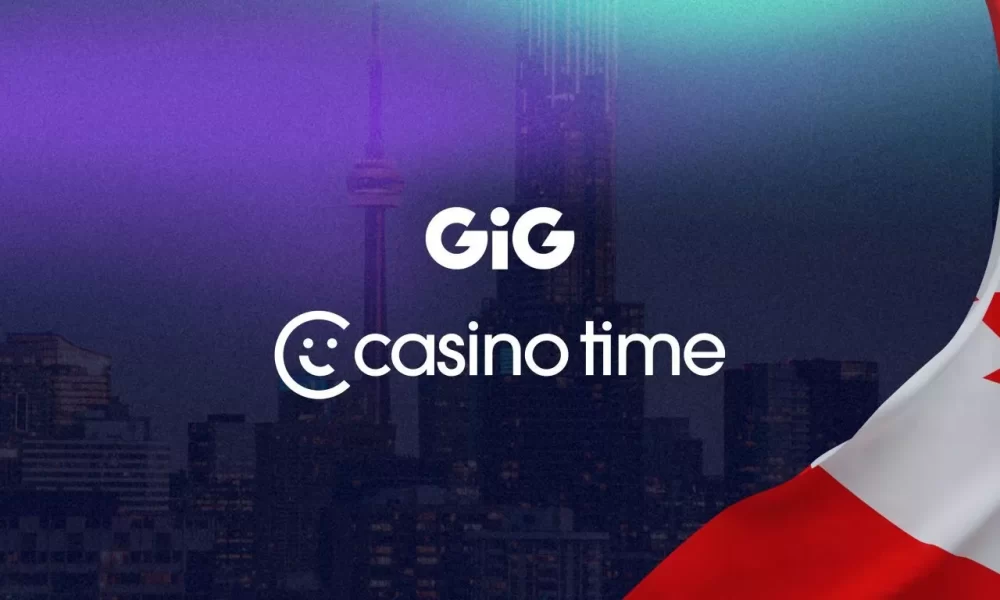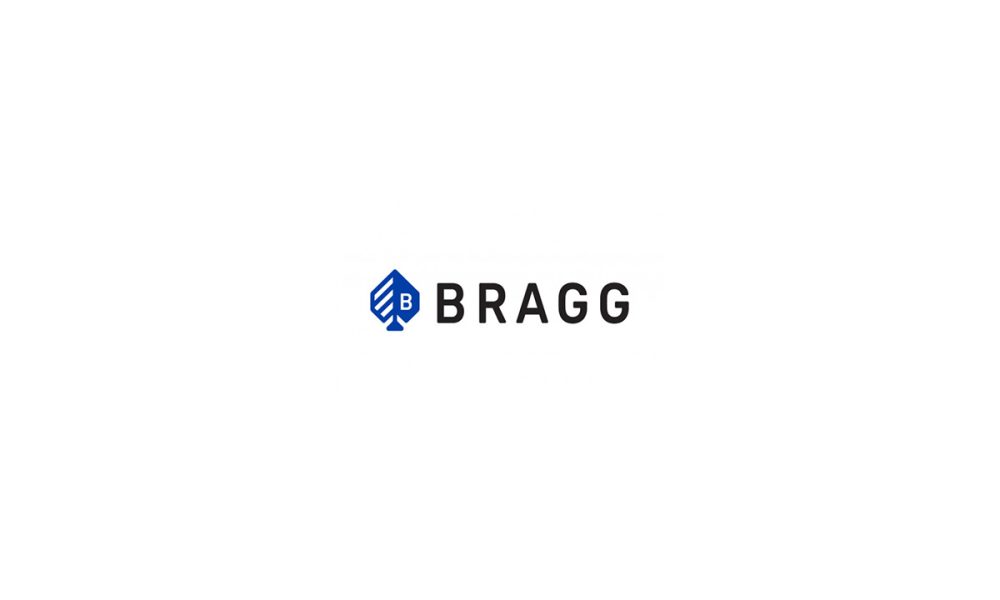

Canada
Exclusive Q&A with Rhydian Fisher, CEO of Instant Win Gaming
Rhydian Fisher is CEO of Instant Win Gaming (IWG), the leading provider of instant win style games to lotteries, commercial brands and platforms in the digital lottery and online gaming sectors. Following the launch of the company’s games with the New Hampshire Lottery, we had the opportunity to speak to Rhydian about recent developments at IWG, the expanding market for digital eInstant lottery games, and in particular the US Lottery opportunity.
Gaming Americas: Congratulations on your games going live with the New Hampshire Lottery. For some background, what are digital eInstants and how will they enhance the lottery’s online offering?
Rhydian Fisher (RF): Digital eInstants as they’re called in the lottery world, or instant win games as they’re often referred to in the commercial gaming world, are a category of online wagering games where the interactive fun is the primary focus. In a general sense, whereas online casino games are all about the chance to win with some interactive fun, eInstants are all about the interactive fun with some chance to win. This differing orientation is really the root of it all. Typical casino players are motivated by the thrill of staking money, and the corresponding volatility of winning and losing. On the other hand, typical eInstant players are, first and foremast, seeking some casual entertainment but love the idea that they might just win some money. This difference very much mirrors casino versus lottery entertainment in general.
To players, eInstants are casual in style, and often really simple to play. However, designing games with these characteristics, yet deliver sustained engagement, is anything but simple. Here at IWG, we have a 20-year history of developing exclusively digital eInstants. No one else has been so solely focused on this in the dedicated way that we have. And, when you have the opportunity to devote consistent focus to one category of games over a such a sustained period of time, you get amazingly good at building them. Today, we proud to be able to say that we’re the best in the world at it.
In New Hampshire, we’ve made a strong start by launching a range of eInstants including New Hampshire Cash Expander, a localized title that tailors our popular Cash Expander mechanic specifically for New Hampshire players. Through previous experience, we know that localized games really resonate with players and we’re expecting the latest title to be a big hit.
Gaming Americas: What is the state of the eInstant lottery market today?
RF: We were fortunate to get involved with this category early on, and it’s certainly been an evolution. In the very beginning, circa 2000, a few lottery operators, like Camelot in the UK, were launching online sales, and were looking for digital games that paralleled their retail instant ticket games. Back then, we had no experience in this, but neither did anyone else, so we set-up shop, started imagining how these games might play, and then jumped in and began building them. From there it’s been a continuous process of iteration. We develop a game, we release it, we analyze the resulting data, we apply what we learn, and we develop the next game. We repeat this process over and over – it’s pretty straight forward. But, it’s culmination of 20 years of learnings that make our games authentic.
The lottery market has become our core focus. Today, we provide eInstant games to 23 WLA/NASPL member lotteries around the world. More and more lotteries are setting up ecommerce channels for what has predominately been a retail-only sales model. We expect this trend to continue. In the US, for example, lottery is a $90 billion per year category, and instant games represent more than 65% of this. Therefore, as these lotteries launch online sales channels, it is very necessary that they have digital eInstants to offer their players.
Gaming Americas: How does managing an eInstant portfolio compare to managing a retail instant portfolio?
RF: There are many similarities, but the demands of the internet channel means that everything is accelerated. One of the more obvious examples is the percentage of prize payout. In the US, a typical retail instant game will have a prize payout of 65% – 80%. This has proven to be optimal for a product that can only be purchased by players during their periodic trips to a retail outlet. However, the addition of an internet channel means that games can be now be purchased wherever and whenever. This translates into much higher play volume, and to be fair to players, this higher play volume must be supported with a higher prize payout. As a result, a typical online eInstant game will have a prize payout of 80% – 85% or more.
A less obvious, but equally important example, is frequency of game launches. Lottery players seek out games that are casual to play. At the same time, they are particularly drawn to the newest titles. With retail instants this might mean a roadmap of games with new launches on a monthly basis. In the internet world, the time dimension is much faster paced. A typical eInstant roadmap will plan a two-week cycle between game launches for most of the year, supplemented by weekly launches during peak seasonal periods.
For suppliers, it helps if you have a culture that thrives in complexity. Across the 23 lotteries that we supply around the world, we’ve never ever delivered the same game twice. There are always custom elements required for each delivery which will range from game theme to prize math to style of outcome engine to a myriad of other factors. The bottom-line, in the lottery sector, non-standard is the standard.
Gaming Americas: Certainly, the retail channel is hugely important to lotteries. What impact do eInstants, and in general, selling lottery online have on retail sales?
RF: This has been one of the real success stories as lotteries modernize. Of course, lotteries everywhere are either already selling their games online, or are considering doing so in the future. It is now common for a lottery’s online channel to account for 20% or more of total sales. Along with this, eInstants will often represent 70% or more of these online sales.
At first, the specter of an additional sales channel can be a concern to the brick and mortar retailers who have been a lottery’s exclusive channel partner to this point. However, across the board, selling online has proven to increase retail sales as well. The reason is straightforward. The lottery’s traditional, cash-only, in-person way of selling games has not kept pace with the modern consumer. Long time players might continue to purchase in this traditional way, but new players can no longer be acquired as efficiently. Modernization, meaning adding online sales, opens up the lottery to a far broader world of potential new players. And, when a lottery introduces a player to its games through its online channel, that player becomes a buyer at retail as well.
Our customer the Michigan Lottery, for example, has been selling their games online for more than five years and have seen traditional retail growth of 45% during this period. Our customer the New Hampshire Lottery, in just its first year of online sales, simultaneously, grew retail sales by 16%. The same trend holds true for every lottery in the US that has instituted online sale. Once a lottery begins selling online, they quickly experience a shift in the support they get from their very important retail partners–from concerned resistance to proactive support.
Gaming Americas: What steps are lotteries taking to support their retail partners?
RF: Even in the case of a lottery where 20% of its sales are online, this means that 80% comes through its retail channel. So, lotteries always take steps to include their retail partners in their online sales initiatives. And, there are many ways to do this.
Our customer, the Pennsylvania Lottery, has integrated its traditional retailers into its affiliate program. A retailer earns affiliate fees by signing up players for online accounts.
Our customer, the Michigan Lottery, offers players the option to fund their account by purchasing a prepaid lottery card at any of their traditional retail outlets. The retailer earns a commission on these sales.
Every lottery we work with is innovating on ways to sell online while also expanding retail sales. And, the collaboration is producing great results.
Gaming Americas: What has been the COVID-19 impact on the lottery sector?
RF: I’ve been in contact with many lotteries during the COVID-19 crisis. Of course, their number one priority is keeping their staff safe and healthy. Beyond that, lotteries understand that they serve an essential function during normal times, and even more so during times like now—generating vitally needed funds for their beneficiaries. Therefore, maintaining uninterrupted operations, in a world of disrupted supply logistics and shelter-in-place orders, is more than ever, the day-to-day focus. No surprise, but those lotteries that currently sell their games online have increased their marketing focus on this channel. And, many lotteries not yet online have been asked to immediately explore plans for setting up online sales, to potentially be actioned once we’re beyond the crisis. Certainly, over time, all lotteries will need to modernize to keep pace player preferences. I suspect that the urgency of the moment may accelerate the thinking on when to do so.
AGCO
AGCO Requires Ontario Gaming Operators to Stop Offering WBA Bets Due to Integrity Concerns

The Alcohol and Gaming Commission of Ontario (AGCO) has mandated all Ontario-registered sportsbook operators to halt offering and accepting wagers on World Boxing Association (WBA) events immediately. This measure is being taken to protect the Ontario betting public following concerns that WBA-sanctioned boxing matches are not adequately being safeguarded against match-fixing and insider betting.
Since December 2023, the AGCO has been conducting a comprehensive review of suspicious wagering activity on a WBA-sanctioned title fight between Yoenis Tellez and Livan Navarro that was held in Orlando, Florida. Suspicious betting patterns on the bout lasting over 5.5 rounds were reported to the AGCO by two registered independent integrity monitors and detected in Ontario by a registered igaming operator. Media reports also alleged that Tellez’s Manager placed $110,000 on the match lasting longer than 5.5 rounds at a Florida casino. The bout ended with Tellez knocking out Navarro in the 10th round.
Following an intensive review that included outreach to the WBA, Ontario-registered gaming operators, independent integrity monitors, and regulators in other jurisdictions, the AGCO has concluded that bets related to WBA events do not currently meet the Registrar’s Standards for Internet Gaming.
The AGCO requires all Ontario-registered gaming operators to ensure the sport betting products they offer are on events that are effectively supervised by a sport governing body. At a minimum, the sport governing body must have and enforce codes of conduct that prohibit betting by insiders.
Registered gaming operators were unable to demonstrate to the AGCO that the WBA prohibits betting from insiders, which could include an athlete’s coaches, managers, handlers, athletic trainers, medical professionals, or others with access to non-public information. Further, registered gaming operators were unable to demonstrate that the WBA took any action to investigate or enforce the allegations of potential match-fixing and insider wagering.
The AGCO has indicated to registered operators that in order for WBA betting products to be reinstated in Ontario, operators must demonstrate that the WBA effectively supervises its events, thus bringing them into compliance with the Registrar’s Standards. In December 2022, the AGCO required gaming operators to stop offering bets on UFC events for similar issues related to insider betting safeguards. Within a month, UFC amended its policies and implemented new protocols that allowed the AGCO to reinstate betting on UFC events in the province.
“Ontarians who wish to bet on sporting events need to be confident that those events are fairly run, and that clear integrity safeguards are in place and enforced by an effective sport governing body. Knowing the popularity of boxing in Ontario, we look forward to reinstating betting on WBA events once appropriate safeguards against possible match-fixing and insider betting have been confirmed,” Dr. Karin Schnarr, Registrar and CEO of AGCO, said.
Andrew Cochrane Chief Business Officer of GiG
GiG increases Ontario market presence, powering the launch of Casino Time

Gaming Innovation Group Inc. (GiG), has announced the launch of Casino Time, powered by its award winning iGaming platform and pioneering real-time rules engine LogicX, with revolutionary sportsbook, SportX soon to follow, to further extend its footprint in the regulated Canadian province of Ontario.
The launch of Casino Time carries extra significance, marking only the second time that on-demand, regulated online Bingo has been made available in Ontario. The new Bingo product vertical, launched alongside a strong Casino offering, will be boosted by GiG’s new sportsbook, SportX, as part of a planned release later this year.
GiG has focused its solutions on driving exponential growth in revenue for operators with its highly scalable iGaming platform, offering localised third party content and leading suppliers for the Ontarian market. GiGs peerless gamification layer creates an optimised and immersive casino experience tailored to regional preferences, swelling client retention and player engagement.
Canadian owned and operated, Casino Time is a joint venture amongst leading retail operators in Ontario’s Charitable Gaming sector, delivering Bingo, Slots and Live Dealer Casino Games. Promising a personalised service and community experience, Casino Time is continuing its long-standing partnership with local charities, introducing its joint fundraising model into the iGaming space for the first time.
Now coming towards the end of its second year of licensed operations, Ontario has emerged as one of the largest iGaming markets in North America, second only to New Jersey according to data supplied by Vixio. The first and as yet only Canadian province to launch a regulated market, Ontario boasts more than 1.6 million active player accounts spread over 40 plus operators, generating €1.3 billion in Gross Gaming Revenue (GGR) in its first year of trading, with this data supplied by iGaming Ontario.
Andrew Cochrane, Chief Business Officer of GiG, said: “GiG continues to set the pace with a strong cadence of brand launches in 2024, and I’m pleased that when operators are seeking platform solutions in regulated markets, GiG is leading the pack. Our partnership with Casino Time, will help deliver something new and exciting to the Ontarian market, and further helps to demonstrate the flexibility of our solutions, adapting to match the regional aspirations of our partners to deliver growth.”
D’Arcy Stuart, CEO of Casino Time, said: “We are thrilled to partner with GiG as the core technology provider of our iGaming platform. Their powerful suite of player engagement tools, as well as diverse content and regulatory integrations, underpin our ability to serve and delight our player community. Our hybrid online and offline customer network, as well as unique bingo offerings, will drive exciting opportunities as the platform and the marketplace continues to grow.”
Bragg Gaming Group
Bragg Gaming Announces Resignation of Chief Financial Officer

Bragg Gaming Group Inc., a global B2B gaming technology and content provider, announced that Chief Financial Officer (CFO), Ronen Kannor, has notified Bragg’s board of directors (Board) that he will resign from his position to pursue other career opportunities, effective June 3, 2024. The Company confirms that the search for a replacement CFO has commenced.
Matevž Mazij, Chief Executive Officer and Chair of the Board, commented: “We thank Ronen for his dedication and commitment to Bragg over the past four years and for his unwavering service as a pivotal member of the leadership team.
“During his tenure as CFO, the Company has undergone huge positive transformation including being uplisted to the Toronto Stock Exchange, dual listed on the NASDAQ and successfully completing two acquisitions, all while reporting consecutive years of revenue, gross profit and adjusted EBITDA growth. We wish Ronen all the very best in his future endeavors.”
Ronen Kannor commented: “It has been an honor to be part of the Bragg team which has successfully navigated many challenges and continued to deliver consistent growth over the past four years. I thank the Board for their support throughout my time with Bragg, and I am now fully focused on ensuring a smooth handover to my successor.
“Special thanks goes to my finance team, who work tirelessly to deliver the positive change and financial growth that the Company continues to achieve. I wish them and all of my colleagues continued success with Bragg now and in the future.”
-

 gaming2 years ago
gaming2 years agoODIN by 4Players: Immersive, state-of-the-art in-game audio launches into the next generation of gaming
-
EEG iGaming Directory7 years ago
iSoftBet continues to grow with new release Forest Mania
-
News6 years ago
Softbroke collaborates with Asia Live Tech for the expansion of the service line in the igaming market
-
News5 years ago
Super Bowl LIII: NFL Fans Can Bet on the #1 Sportsbook Review Site Betting-Super-Bowl.com, Providing Free Unbiased and Trusted News, Picks and Predictions
-
iGaming Industry6 years ago
Rick Meitzler appointed to the Indian Gaming Magazine Advisory Board for 2018
-
News5 years ago
REVEALED: Top eSports players set to earn $3.2 million in 2019
-
iGaming Industry6 years ago
French Senator raises Loot Boxes to France’s Gambling Regulator
-
News6 years ago
Exclusive Interview with Miklos Handa (Founder of the email marketing solutions, “MailMike.net”), speaker at Vienna International Gaming Expo 2018













